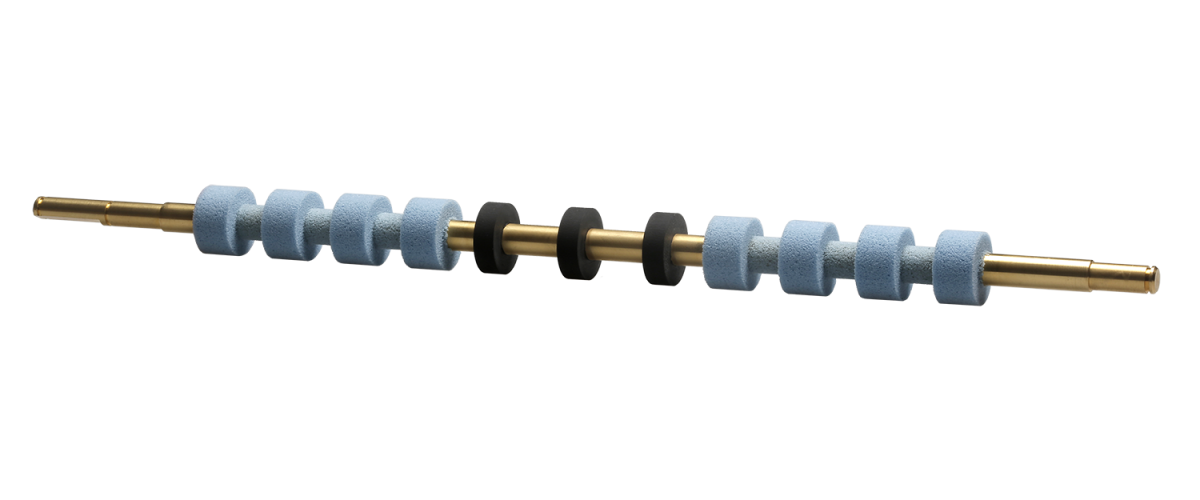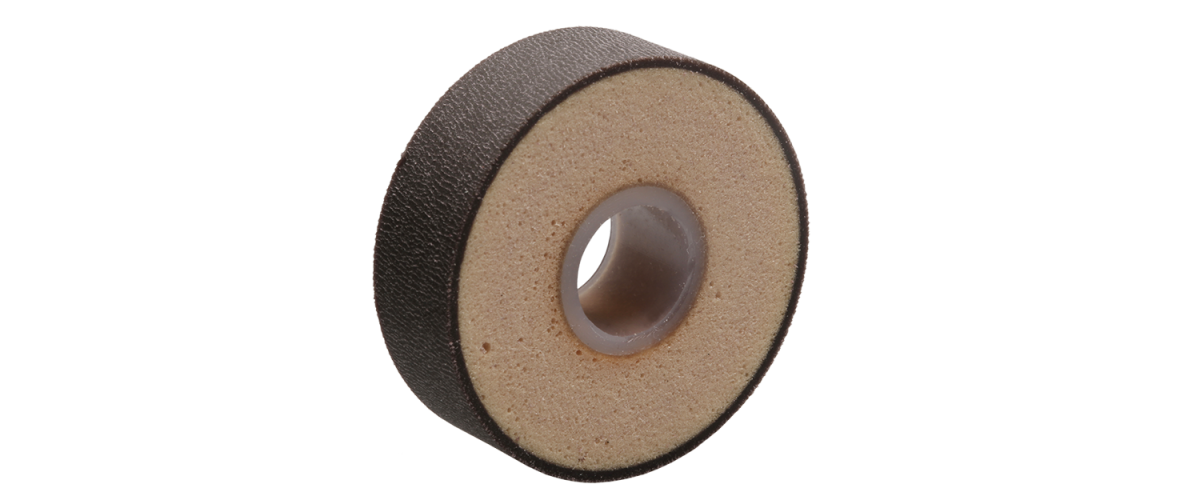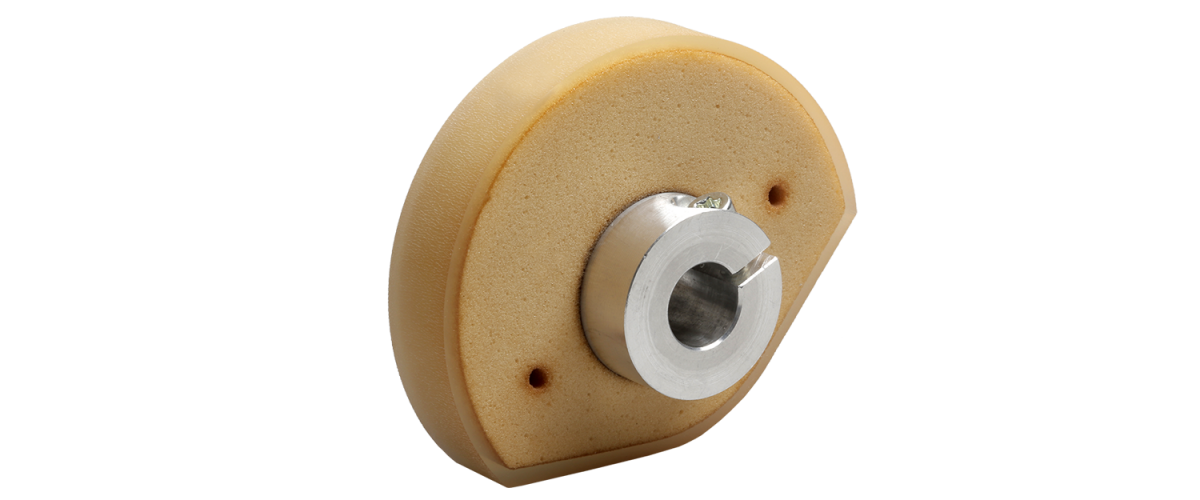Rollers and cylinders with foam coating
When it comes to foam coating, we can support you by manufacturing rollers and cylinders tailored to your dimensions and requirements. Foams of this kind are artificially inflated plastics and elastomers. These materials have a cellular structure and low density (“volume weight”). In addition to their low density, they are also characterized by low thermal conductivity and low strength. Due to their cellular structure, foam components are also virtually free of residual stress. We would be delighted to advise you on the specific choice of material and all the details of your project.
Foam types and their characteristics
Our foam coatings can be produced from different materials. Both base materials create a material with very good thermal insulation properties, i.e. low thermal conductivity. At TYP AG and TGW GmbH, we distinguish between PU foams, silicone foam and cellular rubber.
PU foams
PU foams are produced on the basis of polyether or polyester and foamed using carbon dioxide. Depending on the base material, the foam has high elasticity and good resistance to acids and alkalis, or a high capacity for shock absorption and resistance to organic solvents. PU foam can also be used safely at temperatures of up to 100˚C.
Silicone foam
Silicone foam is produced on the basis of silicium by adding oxygen. It has a non-adhesive effect and acts as a good electrical insulator as it is not electrically conductive. Silicone foam also has high elasticity with high resilience.
Cellular rubber
Cellular rubber is a porous, closed-cell rubber quality that is available in various strengths and densities. It is produced using the so-called expansion process – on the basis of natural and/or synthetic rubber (e.g. EPDM and other synthetic elastomers). Cellular rubber is airtight and waterproof and therefore, unlike sponge rubber, does not require an outer skin.
Foam coating structure
Different manufacturing processes make it possible to give the foam different material structures.
- Open-cell foam: This foam has a structure with open cell walls. As a result, it is permeable to air and can absorb liquids.
- Closed-cell foam: In contrast to open-cell foam, its cell walls are closed. This results in a higher density, making it water-repellent and impermeable to air. At the same time, the strength and rigidity of the material also increase.
- Mixed-cell foams: This type of foam combines open-cell and closed-cell foams in a smooth transition and thus also their advantages.
- Integral foam: Open-cell and closed-cell foams are also combined here. There is a closed-cell layer on the outside and a soft, open-cell core on the inside.
Benefits of a foam coating
Depending on the choice of material, there are many different benefits and additional properties for your process:
- High elasticity
- Heat-resistant up to 100˚C
- Good thermal insulation due to low thermal conductivity
- Resistance to chemicals
- Liquid absorption and air permeability
Areas of application for foam-coated rollers and cylinders
Thanks to the high elasticity of their foam coating, such rollers and cylinders are particularly suitable for processing sensitive products or due to their ability to absorb liquids. This includes applications in the areas of:
- Electronic components
- Optical and LCD products
- Foodstuffs
- Pharmaceutical products
- Adhesives
- Toner devices (toner pick-up)
- Paper processing (height compensation)
- Labeling systems
- Marking and labeling systems
- Surface drying
- Banknote processing sensors
We manufacture rollers and cylinders with foam coating and much more!
In addition to foam coatings, we also manufacture rollers and cylinders with silicone coatings, polyurethane coatings or special non-stick coatings. And if things get a little more exciting, we can supply you with rollers and cylinders with an electrically conductive coating.
Would you like to have your rollers and cylinders cleaned of old coating or repaired? We will be happy to do this for you too. We will make the roller and its coating look like new again as part of our recycling program.







